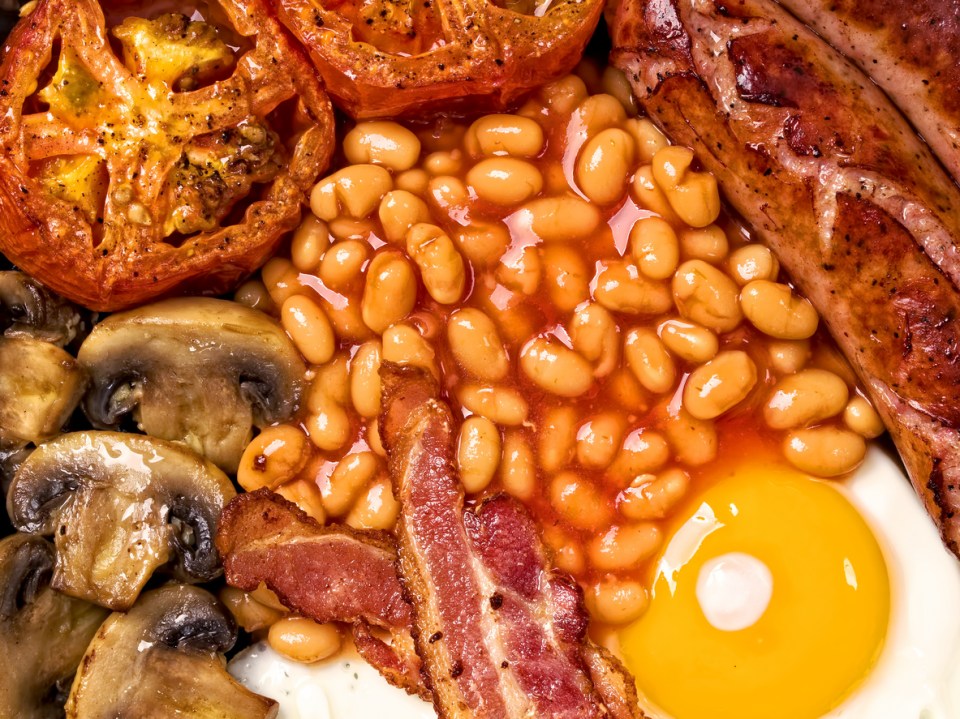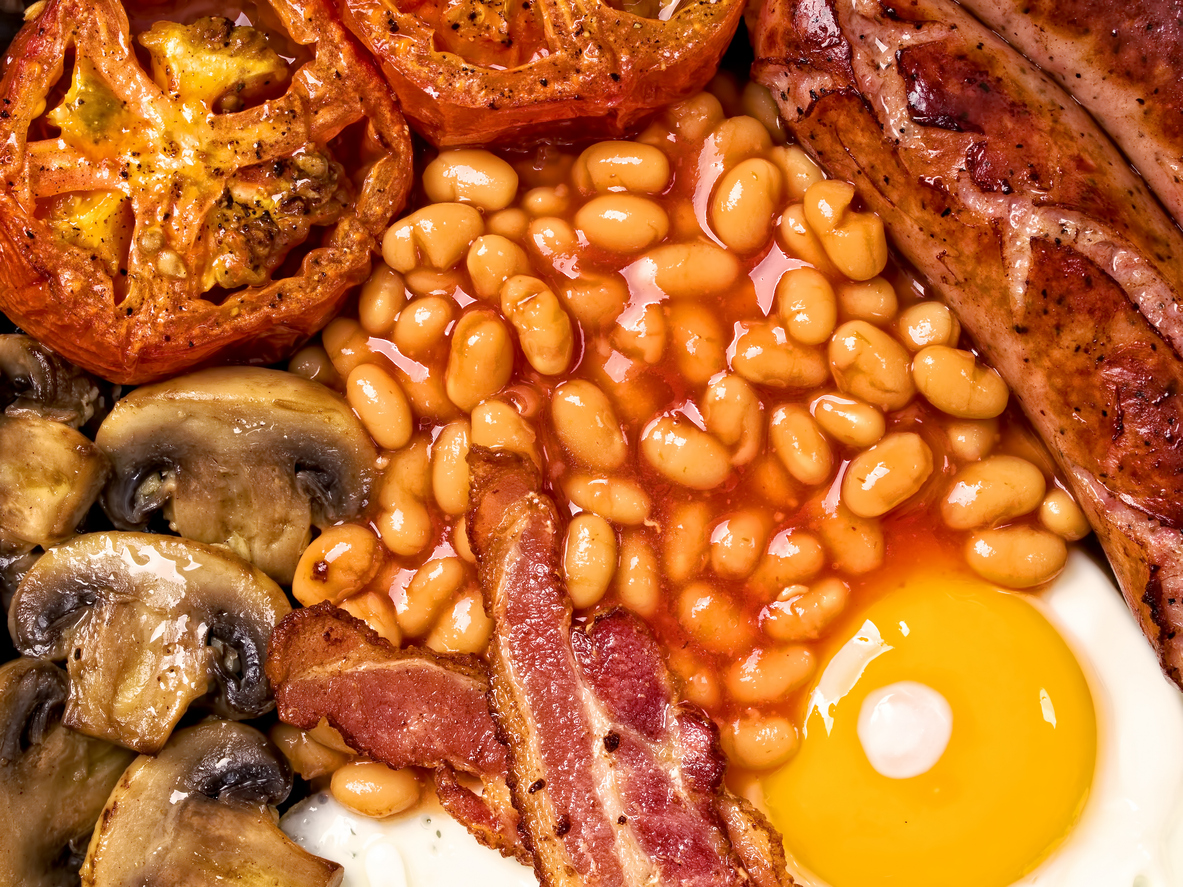More proof, if it were needed, of the gastronomic generation gap. It seems one in ten young persons has never had a full English/Irish/whatever cooked breakfast and one in five only has it once a year. They are, of course, missing out on one of the pleasures of life. The cooked breakfast and afternoon tea are, with pudding, the great contribution of these islands to food.
As to what constitutes a good breakfast, I refer you to what I consider the perfect cookery book: The Cookery Year, published by the Reader’s Digest in the 1970s. There, Theodora Fitzgibbon, a wonderful Irish food writer, briskly summarises it thus:
Porridge or cornflakes may be followed by fried bacon and eggs, with sausage, tomatoes and mushrooms. Kippers are universal favourites, so are herrings in oatmeal, kedgeree and smoked haddock poached in milk and butter. Grilled kidneys or cod roe with Irish potato cakes are also delicious. Boiled, poached or scrambled eggs are popular, and no breakfast table is complete without toast, butter and marmalade.
There, folks, is a high point in culinary civilisation. I’d particularly draw attention here to the now neglected aspects of the feast. Kedgeree is a cinch to make – flaked smoked haddock, onion, rice and cream, with quartered eggs on top (sounds horrid; tastes wonderful) – and is yum for lunch as well as breakfast. Potato cakes are easy-peasy too: hot mashed potato mixed with flour and butter and a bit of milk and fried, ideally, in bacon fat. Kidneys are dead cheap and good devilled, i.e. spiced up. That’s the thing about breakfast; it fills you up relatively economically.
And what constitutes the full English? I had a full Welsh the other day in a nice country house hotel, and on the plus side, it had the option of a slab of black pudding (in Ireland there’d be white also). There was good streaky bacon (nicer than back) and handsome sausages. But there were two discordant elements that you get everywhere now: hash browns and a little dish of baked beans. Let’s stand firm here: these have no place in a breakfast. Hash browns are unnecessary (and anyway no substitute for potato cakes) and beans though fine by themselves on toast just get in the way of the good stuff.
But the element of the breakfast that I should most like to reform is the tomato. More often than not they’re grilled and half cooked on top, raw below. The best way to cook tomatoes for breakfast is to fry them, ideally in a little dripping, and crucially, to cover the pan with a lid while they’re cooking until soft and the skin comes off easily. That way they give off their delicious juices (which mingle sublimely with egg) and you scoop them up with the bacon or sausage. The best bit is mopping up the juices with good bread.
Sydney Smith rounded off his ode to the perfect salad with the words: ‘Serenely full, the epicure would say: “Fate cannot harm me; I have dined today”.’ Well, you can say as much with a good breakfast.








Comments